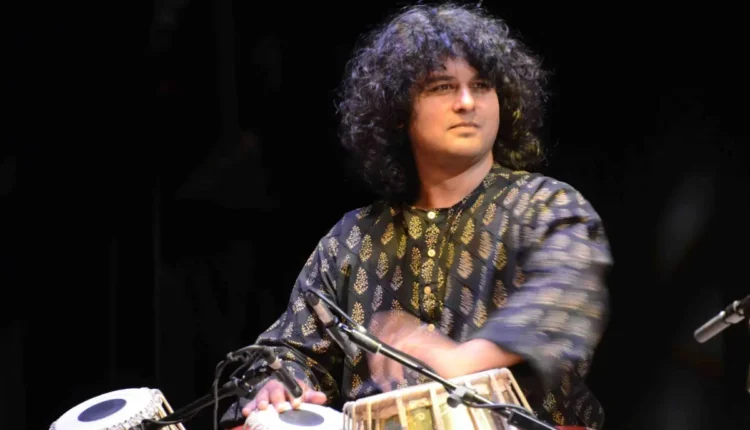Cassius Khan is a name that resonates deeply within the world of Indian classical music. Known for his extraordinary ability to play the Tabla while singing Ghazal, Khan has carved a unique niche for himself, blending traditional Indian music with a modern flair. Born on June 7, 1974, in Lautoka, Fiji, and raised in Vancouver, Canada, Khan’s journey from an aspiring teenager to a globally recognized maestro is one of inspiration, dedication, and groundbreaking innovation.
From an early age, Khan was drawn to the rhythms and melodies of Indian classical music. His encounter with Mushtari Begum, a prominent Ghazal singer, and Ustad Rukhsar Ali, a renowned Tabla player, profoundly shaped his musical development. Under their mentorship, Khan mastered the rare and demanding art of playing the Tabla while simultaneously singing Ghazals.
This feat is not only rare but one that has placed him among the legends of the genre. He further honed his skills in the Tarannum Ang Gayaki style, which added layers of complexity and beauty to his performances, making his artistry distinct.
Breaking Boundaries with Passion and Skill
Khan’s journey to the top wasn’t without challenges. Like many pioneers in their fields, he faced obstacles in gaining widespread recognition early on. His debut album, Cassius Khan – The Young Tabla/Ghazal Wizard, showcased his innovative approach but didn’t immediately bring him mainstream success.
Yet, Khan’s dedication to his craft and his determination to introduce a unique style of music kept him going. After completing his college education, he embarked on a rigorous career, touring across North America, Europe, and South America. He captivated audiences not only as a master Tabla player but also as a soulful Ghazal singer, eventually establishing himself as a trailblazer in the music world.
Cassius Khan’s career gained significant momentum in 2001 when he composed the iconic “Asia Music” for the IAAF World Championships in Athletics. His contribution to the event under the guidance of renowned composer Jan Randall thrust him into the international spotlight.
That same year, Cassius Khan was named by BBC Radio 2 as one of the “Top 25 World Artists to Look Out For.” This recognition solidified his place as a musician with immense global potential. His concerts grew in prominence, as did his collaborations with artists across various genres, including Jazz, Blues, and Rock.
In 2008, Cassius Khan was invited to perform at South by Southwest (SXSW) in Austin, Texas, after being selected from over 8,000 applicants. His unique fusion of Ghazal and Tabla captivated audiences, establishing him as an artist to watch on the world stage. His collaborations with other international artists further expanded his influence.
Cassius Khan worked with blues guitarist Ellen McIlwaine on Mystic Bridge, which earned them a Juno Award nomination for Roots & Traditional Album of the Year in 2008. His ability to seamlessly blend Indian classical music with western sounds, while maintaining the integrity of both genres, earned him widespread acclaim.
The Mushtari Begum Festival and Global Recognition
Cassius Khan’s commitment to preserving and promoting Indian classical music is evident in his many initiatives. Along with his wife, Amika Kushwaha, Khan founded the Mushtari Begum Festival of Indian Classical Music and Dance in 2012.
This festival has since become a celebrated annual event in New Westminster, British Columbia, where musicians and dancers from around the world come together to share their talents and inspire audiences. Through the festival, Khan and Kushwaha aim to keep the tradition of Indian classical music alive, while introducing it to new generations.
One of Khan’s most significant contributions to the music world came with the release of his album Mushtari in 2011. The album, which features both Ghazal singing and Tabla played simultaneously by Cassius Khan, was the first of its kind.
It was nominated for the “World Album of the Year” by the Western Canadian Music Awards and is considered a tribute to his teacher, Mushtari Begum. This achievement not only honored his roots but also showcased his immense skill and dedication to preserving the classical Ghazal form.
Khan’s efforts have earned him multiple accolades, including the prestigious “Salute to Excellence Award” by the City of Edmonton in 2005 and the “Bernie Legge Artist of the Year” award in 2019. His global performances include concerts for the United Nations in Geneva, Switzerland, where he represented Indian culture and music with great pride.
His performances for organizations like the World Intellectual Property Organization and the Permanent Mission of India further demonstrate his role as a cultural ambassador, spreading the beauty of Indian classical music across borders.
A Legacy of Innovation and Dedication
Cassius Khan’s journey is a testament to what can be achieved through innovation, perseverance, and a deep respect for tradition. His ability to simultaneously play the Tabla and sing Ghazal has earned him the title of “Ustad,” a recognition that only the most skilled and dedicated musicians achieve. His passion for music and his desire to elevate Indian classical traditions to new heights have made him a pioneer in his field.
But Khan’s contributions go beyond performance. As a teacher, curator, and cultural ambassador, he continues to influence the next generation of musicians. His work as a visiting instructor at the Mulgrave School in Vancouver allows him to share his expertise with young students, nurturing their interest in Indian classical music. His role as the curator of the Massey Unlimited Global Tea Series showcases his commitment to promoting cultural diversity through music.
Also Read:Kasturba Gandhi: The Quiet Power Behind India’s Struggle for Freedom

